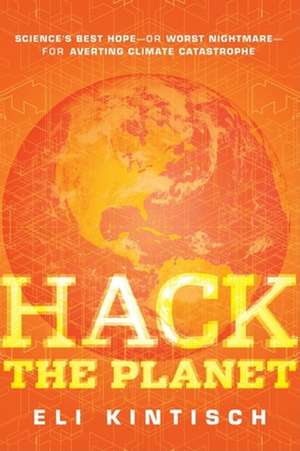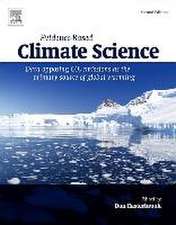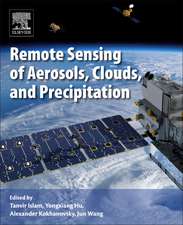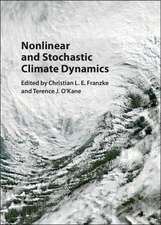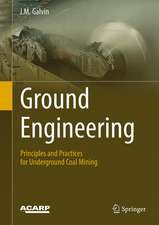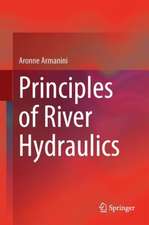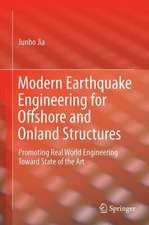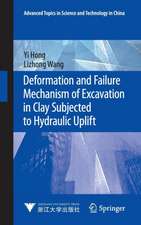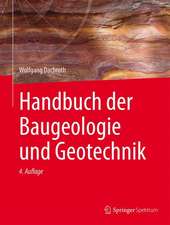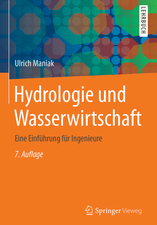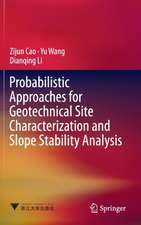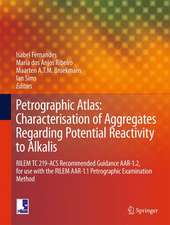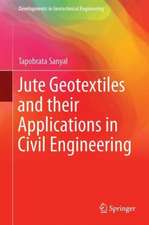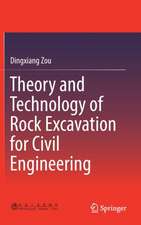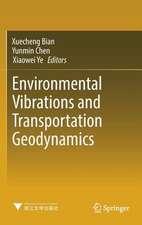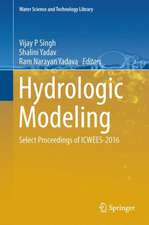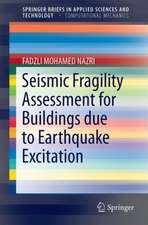Hack the Planet: Science′s Best Hope – or Worst Nightmare – for Averting Climate Catastrophe
Autor Eli Kintischen Limba Engleză Hardback – 15 apr 2010
While the pernicious effects of global warming are clear, efforts to reduce the carbon emissions that cause it have fallen far short of what s needed. Some scientists have started exploring more direct and radical ways to cool the planet, such as:
- Pouring reflective pollution into the upper atmosphere
- Making clouds brighter
- Growing enormous blooms of algae in the ocean
Scientists are developing geoengineering techniques for worst–case scenarios. But what would those desperate times look like? Kintisch outlines four circumstances: collapsing ice sheets, megadroughts, a catastrophic methane release, and slowing of the global ocean conveyor belt.
As incredible and outlandish as many of these plans may seem, could they soon become our only hope for avoiding calamity? Or will the plans of brilliant and well–intentioned scientists cause unforeseeable disasters as they play out in the real world? And does the advent of geoengineering mean that humanity has failed in its role as steward of the planet or taken on a new responsibility? Kintisch lays out the possibilities and dangers of geoengineering in a time of planetary tipping points. His investigation is required reading as the debate over global warming shifts to whether humanity should Hack the Planet.
Preț: 145.36 lei
Nou
Puncte Express: 218
Preț estimativ în valută:
27.82€ • 28.74$ • 23.14£
27.82€ • 28.74$ • 23.14£
Carte disponibilă
Livrare economică 26 februarie-12 martie
Preluare comenzi: 021 569.72.76
Specificații
ISBN-13: 9780470524268
ISBN-10: 047052426X
Pagini: 279
Dimensiuni: 165 x 240 x 25 mm
Greutate: 0.49 kg
Editura: Wiley (TP)
Colecția John Wiley &Sons
Locul publicării:Hoboken, United States
ISBN-10: 047052426X
Pagini: 279
Dimensiuni: 165 x 240 x 25 mm
Greutate: 0.49 kg
Editura: Wiley (TP)
Colecția John Wiley &Sons
Locul publicării:Hoboken, United States
Public țintă
For years, "environmentalism" languished as a current affairs topics, but climate change has given science writers a vast, urgent topic with a steady flow of new research. (Not to mention a steady flow of bestsellers.) Readers in this area want two things in a book like this: (1) specific, urgent problems and (2) facts about practical, near–term actions, negative or positive. Like Six Degrees or Field Notes from a Catastrophe, this book offers both.Descriere
PRAISE FOR HACK THE PLANET "Hack the Planet reads like a sci–fi novel.But it′s all the scarier because it′s true."
Elizabeth Kolbert, author of Field Notes from a Catastrophe: Man, Nature, and Climate Change
"Anyone who considers themselves scientifically literate had better get versed in the new discipline of geoengineering or planethacking, as Eli Kintisch calls it in this nuanced and useful new account. This discussion is not going to go away anytime soon!"
Bill McKibben, author of Eaarth: Making a Life on a Tough New Planet
"As climate change goes unmitigated and continues to worsen,it seems we can no longer avoid a public debate on the prospect of planetary geoengineering doing something probably bad to the planet to avert something even worse. It will be an Earth–changing discussion, and no one should feel competent to participate without having first read Eli Kintisch′s Hack the Planet, an indispensable introduction to the topic. The scientific ideas he explains and characters he depicts are compelling and occasionally riveting."
Chris Mooney, author of The Republican War on Science and coauthor of Unscientific America
"Hack the Planet is a superbly written and reportedchronicle of a remarkable story. In just a few years, ′geoengineering′ fixes to climate change simulating volcanoes, CO2–sucking, cloud–brightening have gone from crackpot to considered ideas. Eli Kintisch′s book is boundlessly smarter and more deeplyresearched on this topic than SuperFreakonomics. Expect to hear much more in coming years from the planet–hackers and from Kintisch."
Eric Roston, author of The Carbon Age: How Life′s Core Element Has Become Civilization′s Greatest Threat
Elizabeth Kolbert, author of Field Notes from a Catastrophe: Man, Nature, and Climate Change
"Anyone who considers themselves scientifically literate had better get versed in the new discipline of geoengineering or planethacking, as Eli Kintisch calls it in this nuanced and useful new account. This discussion is not going to go away anytime soon!"
Bill McKibben, author of Eaarth: Making a Life on a Tough New Planet
"As climate change goes unmitigated and continues to worsen,it seems we can no longer avoid a public debate on the prospect of planetary geoengineering doing something probably bad to the planet to avert something even worse. It will be an Earth–changing discussion, and no one should feel competent to participate without having first read Eli Kintisch′s Hack the Planet, an indispensable introduction to the topic. The scientific ideas he explains and characters he depicts are compelling and occasionally riveting."
Chris Mooney, author of The Republican War on Science and coauthor of Unscientific America
"Hack the Planet is a superbly written and reportedchronicle of a remarkable story. In just a few years, ′geoengineering′ fixes to climate change simulating volcanoes, CO2–sucking, cloud–brightening have gone from crackpot to considered ideas. Eli Kintisch′s book is boundlessly smarter and more deeplyresearched on this topic than SuperFreakonomics. Expect to hear much more in coming years from the planet–hackers and from Kintisch."
Eric Roston, author of The Carbon Age: How Life′s Core Element Has Become Civilization′s Greatest Threat
Textul de pe ultima copertă
PRAISE FOR HACK THE PLANET "Hack the Planet reads like a sci–fi novel.But it′s all the scarier because it′s true."
Elizabeth Kolbert, author of Field Notes from a Catastrophe: Man, Nature, and Climate Change
"Anyone who considers themselves scientifically literate had better get versed in the new discipline of geoengineering or planethacking, as Eli Kintisch calls it in this nuanced and useful new account. This discussion is not going to go away anytime soon!"
Bill McKibben, author of Eaarth: Making a Life on a Tough New Planet
"As climate change goes unmitigated and continues to worsen,it seems we can no longer avoid a public debate on the prospect of planetary geoengineering doing something probably bad to the planet to avert something even worse. It will be an Earth–changing discussion, and no one should feel competent to participate without having first read Eli Kintisch′s Hack the Planet, an indispensable introduction to the topic. The scientific ideas he explains and characters he depicts are compelling and occasionally riveting."
Chris Mooney, author of The Republican War on Science and coauthor of Unscientific America
"Hack the Planet is a superbly written and reportedchronicle of a remarkable story. In just a few years, ′geoengineering′ fixes to climate change simulating volcanoes, CO2–sucking, cloud–brightening have gone from crackpot to considered ideas. Eli Kintisch′s book is boundlessly smarter and more deeplyresearched on this topic than SuperFreakonomics. Expect to hear much more in coming years from the planet–hackers and from Kintisch."
Eric Roston, author of The Carbon Age: How Life′s Core Element Has Become Civilization′s Greatest Threat
Elizabeth Kolbert, author of Field Notes from a Catastrophe: Man, Nature, and Climate Change
"Anyone who considers themselves scientifically literate had better get versed in the new discipline of geoengineering or planethacking, as Eli Kintisch calls it in this nuanced and useful new account. This discussion is not going to go away anytime soon!"
Bill McKibben, author of Eaarth: Making a Life on a Tough New Planet
"As climate change goes unmitigated and continues to worsen,it seems we can no longer avoid a public debate on the prospect of planetary geoengineering doing something probably bad to the planet to avert something even worse. It will be an Earth–changing discussion, and no one should feel competent to participate without having first read Eli Kintisch′s Hack the Planet, an indispensable introduction to the topic. The scientific ideas he explains and characters he depicts are compelling and occasionally riveting."
Chris Mooney, author of The Republican War on Science and coauthor of Unscientific America
"Hack the Planet is a superbly written and reportedchronicle of a remarkable story. In just a few years, ′geoengineering′ fixes to climate change simulating volcanoes, CO2–sucking, cloud–brightening have gone from crackpot to considered ideas. Eli Kintisch′s book is boundlessly smarter and more deeplyresearched on this topic than SuperFreakonomics. Expect to hear much more in coming years from the planet–hackers and from Kintisch."
Eric Roston, author of The Carbon Age: How Life′s Core Element Has Become Civilization′s Greatest Threat
Cuprins
1 It′s Come to This. 2 Hedging Our Climate Bets.
3 The Point of No Return.
4 The Pinatubo Option.
5 The Pursuit of Levers.
6 The Sucking–1–Ton Challenge.
7 Credit Is Due.
8 Victor′s Garden.
9 The Sky and Its Reengineer.
10 The Right Side of the Issue.
11 A Political Climate.
12 Geoengineering and Earth.
Acknowledgments.
Notes.
Index.
3 The Point of No Return.
4 The Pinatubo Option.
5 The Pursuit of Levers.
6 The Sucking–1–Ton Challenge.
7 Credit Is Due.
8 Victor′s Garden.
9 The Sky and Its Reengineer.
10 The Right Side of the Issue.
11 A Political Climate.
12 Geoengineering and Earth.
Acknowledgments.
Notes.
Index.
Recenzii
"Geoengineering is generally defined as the application of engineering techniques to alter the planet as a whole...as Mr. Kintisch relates, these remedies are not necessarily simple and even their easy–to–envision consequences can be alarming."
New York Times
New York Times
Notă biografică
ELI KINTISCH is a reporter for Science magazine. He has also written for Slate, Discover, and the New Republic. He lives in Washington, D.C.
